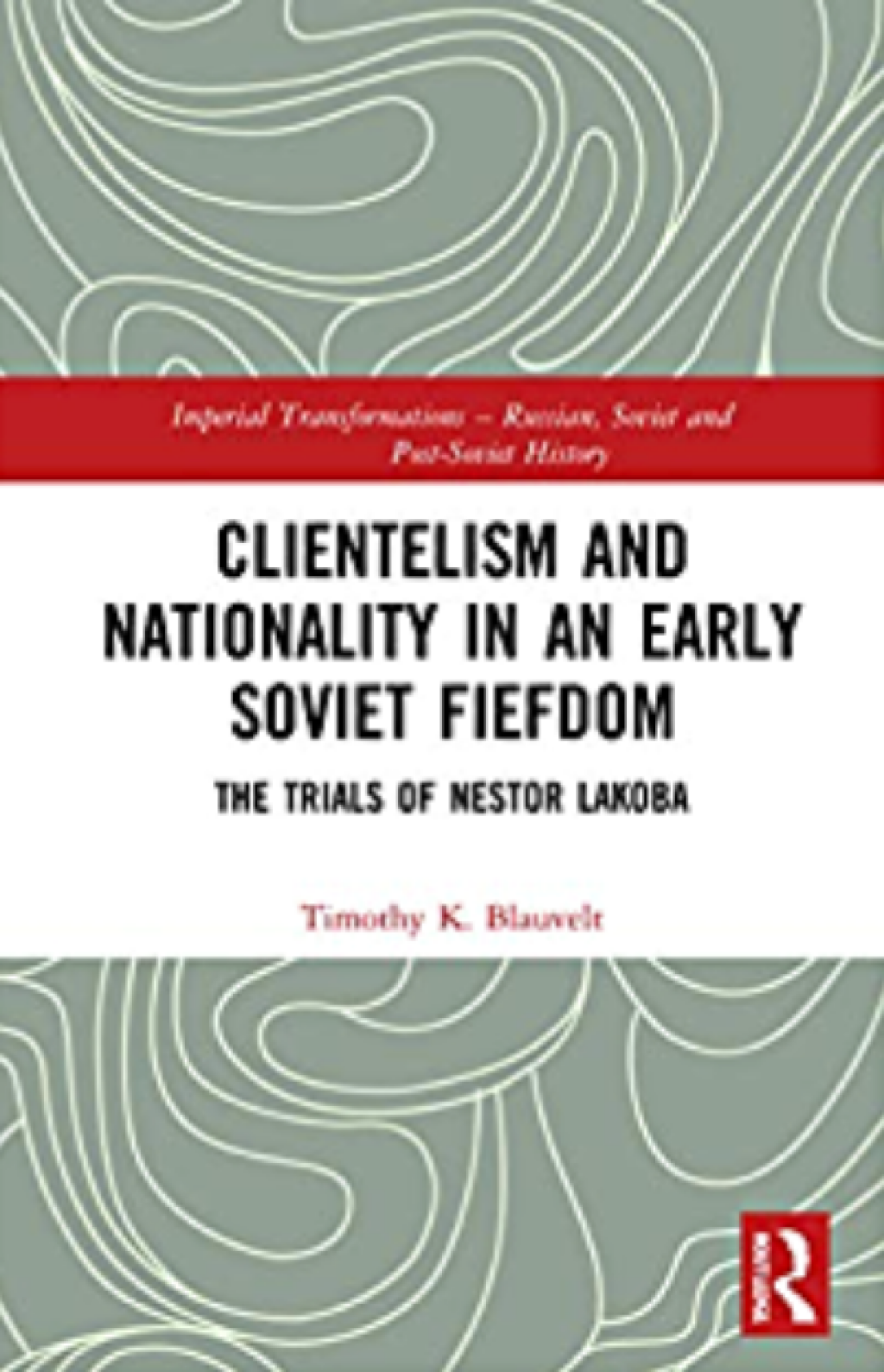Scout Mills is an M.A. student in the Department of Russian & Slavic Studies at NYU.
On Vladimir Putin’s sixty-third birthday, Russian rapper and businessman Timur Yunusov — better known by his stage name, “Timati” — released a music video featuring the hook “My best friend is President Putin.” The video received mentions from Western and Russian publications alike. To those unfamiliar with Timati and Russian popular culture, the song was a comical artifact of Putin’s rule over an enigmatic country dominated by kitsch propaganda and undying loyalty to its “supreme leader.” But Timati’s presence in contemporary Russian society extends far beyond his birthday gift to Putin. He should not be left to molder alongside myriad other meme-worthy headlines about the rare dogs and erotic calendars given to Putin throughout the years.
Of the various pop acts that have dedicated songs to Russia’s president, Timati is by far the most notable. For all its seeming outlandishness, however, “Best Friend” is at best a B-side to the rapper’s career. Timati released his debut solo album, Black Star, in 2006 and founded an eponymous record label in tandem with his production company, Black Star Inc., and Black Star by Timati, a clothing collection. Through Black Star, Timati has extended his cultural reach into the realm of lifestyle branding, putting his name on everything from tattoo parlors to barbershops. In 2017, the Russian Orthodox Church declared that in order to popularize Russian culture and national identity, Russia should turn to Timati; subsequently, Timati was invited to perform renditions of classic Russian poetry in order to attract younger generations to read literature. Musician Sergei Shnurov himself told RBK that Timati’s appeal lies in his conversational lyrical style, which renders his songs as relatable and culturally relevant as folk music. Listening to Timati’s music facilitates full immersion into his world: he has an alter ego (more on that below), a marketing deal with a Kvas brand, a chain of burger restaurants, and a loyal Instagram following of 11 million.
Timati’s lifestyle package is marked by its emphasis on national identity, a product that has become essential to Russia’s post-Soviet cultural development. The current revival of Russian nationalism is typically focused on the idea of ethnically Russian regional dominance. Timati, however, provides a narrative far more in line with the Putin regime’s official position, which stresses ethnic diversity and “modernization” as a tool to improve Russia’s reputation. “I voted for and will vote for Putin. People are finally looking at us like a competent country,” he told GQ in 2016.
Black Star is a label with a mission, which is stated clearly on its website: “We love music and are striving to make the Russian music industry higher-quality and more competitive.” According to the site’s own copy, Black Star is “more than music—it’s a lifestyle.” The militaristic subtext of that lifestyle suggests that its very existence is premised on an unspoken war. For example, Timati’s clothing line, “Black Star Wear,” abounds with military imagery, including camouflage and Russian (or Kazakh) flags stitched along the arms and lapels of jackets and sweatshirts. The designs for these articles of clothing bear names like “patriot” or “the future is Russian” — all written in English. Timati bolsters his claims about making Russia a “competitive, competent” country through his insistence on producing his goods locally. Indeed, since 2015, Black Star Wear manufactures its goods in Russia rather than China.
One of Timati’s Black Star colleagues, Matvei “Mot” Melnikov, is another example of contemporary Russian rap aesthetic’s tendency to capitalize on its relationship with the West in order to carve out a unique niche. The music video for “Rap from Mama Russia” shows Mot in a jacket printed with a five-thousand-ruble notes instead of the more typical trend of hundred-dollar bills. “Mama Russia,” or “Rasha,” as it is also rendered, is a Western stereotype, which Mot has seemingly internalized and reproduced in the song’s lyrics: “Rap from Mama Russia instead of your sanctions/ We all believe in the top and the pursuit of new paths/ The American Dream—nah, Russian focus.” Here, Mot reclaims Western judgments of his country in the service of national empowerment, suggesting that Russia doesn’t need the American dream because it can create its own version of “the good life.”
Timati’s appeals to Russian ethno-nationalism belie his own diverse heritage: he is the child of a Jewish mother and a Tatar father. Yet he hardly shies away from his own roots. In the song “Swagger,” for instance, he raps, “I’m like the late 90s/ I became a New Russian from rap/ Though I’m not even Russian/ But let’s not get into that.” This lyric refers to the “new Russians” who became wealthy in the wake of Soviet collapse; in Timati’s case, however, this reference is laden with irony. Similarly ironic is Timati’s alter ego, “Teimuraz” — an exaggerated, stereotypical portrayal of a man from the Caucasus region of Russia. Unlike Timati himself, Teimuraz wears socks with sandals, sports gold teeth, and speaks with a noticeable accent. Timati’s alter ego thus plays on stereotypes about his non-Russian ethnicity, which has frequently made him the object of racial epithets and slurs. Even his use of the word “Black” as his signature reflects his attempt to reclaim the term.
Timati’s anthem to Russian patriotism, “Utesov,” exemplifies how his worldview and lifestyle branding strategy combine to create a new ideal for Russianness that would change the national narrative. In “Utesov,” Timati refers to “London,” a collaboration with rock singer Grigoriy Leps, whose refrain is “I’m leaving to live in London.” This time, however, Timati makes it clear that he has decided not to leave: “Ask Leps, I didn’t leave for London/ 95 reasons to stay in Grozny.” Timati returns to the topic of emigration in a commercial for a Russian sausage brand, wherein he and Leps attempt to leave the country but refuse to part with their sausage. “Who needs London?” says Leps after airport security informs them that they can’t bring the sausage with them. This advertisement can be interpreted as a response to criticisms of Russia’s foreign food ban. It is also in tune with Timati’s specific style of Russian patriotism, which asks Russians to consider why they idolize the West when everything they need is already in Russia.
Accordingly, “Utesov”’s lyrics read like a list of Russia’s natural and cultural resources, from the (severely endangered) Amur tiger to the French actor Gerard Depardieu, who gained Russian citizenship in 2013. The song’s video shows Timati and Georgian rapper L’One riding a tank in front of Russian flag motifs, accompanied by a girl in a military uniform and a bear. “I changed all my foreign money [u.e.—uslovnaya edinitsa] into Rubles” raps Timati in the first verse. The line’s underlying sentiments are made even more explicit in the song’s final refrain: “Cowards are ditching the country, but I’m going to stay.” The song’s patriotic message is fundamentally comparative — offering a list of material attributes that make Russia “just as good” as the West rather than presenting the rappers’ personal reasons for loving Russia qua Russia.
For Westerners, the idea that the Kremlin carefully curates all mass culture may be comforting. Not only does it reinforce familiar Cold-War stereotypes about “Russian propaganda;” it also allows Putin’s critics to believe that any support for his regime is coerced or staged. But regarding figures like Timati merely as tools of a centralized propaganda machine blinds us to the messaging of his strategic business plan and lyrical content. While his professed love of Putin may unsettle some observers, Timati’s pursuit of Russian cultural relevance can only outrage those who have never noticed the dollar bills and American flags adorning T-shirts the world over. At the same time, it is clear that Timati’s Russianness is defensive and compensatory — his songs grasp at a lost grandeur while emphasizing the qualities that have made Russian great all along. Ultimately, no one summarizes Timati’s positions better than Timati himself. In the track “To Say the Least,” he raps:
But we are collecting the fragments of the Russian Empire,
And you know, I realized that aside from swagger
There’s something much more important:
A healthy people, a well-defined goal,
The strength of a national idea.






